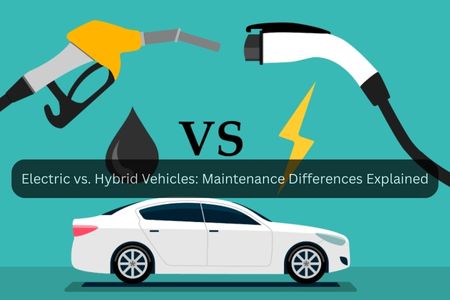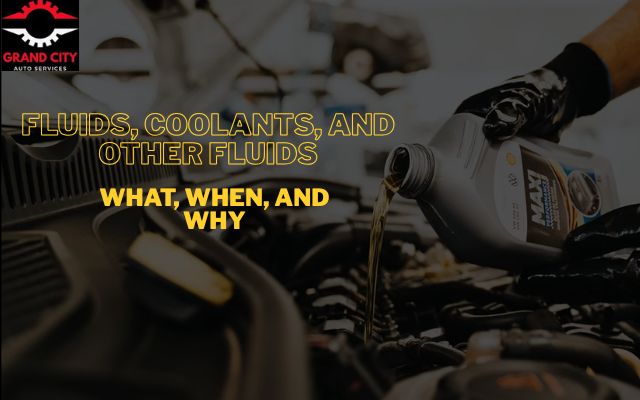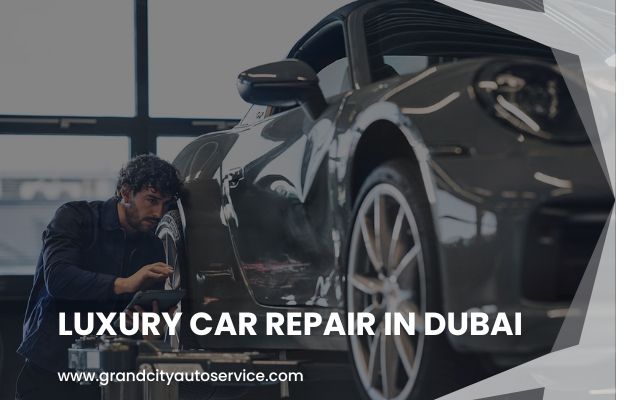The automotive industry has evolved significantly over the past decade with the introduction of electric and hybrid vehicles. These new types of cars promise to be more environmentally friendly, cost-efficient, and technologically advanced compared to traditional gasoline-powered cars. However, when it comes to maintenance, electric and hybrid vehicles present unique challenges and benefits. Understanding the differences in maintenance for these vehicles can help owners make informed decisions and keep their cars in optimal condition.
In this article, we’ll explore the key differences in maintenance between electric and hybrid vehicles and how these differences impact vehicle owners.
What Is the Difference Between Electric and Hybrid Vehicles?
Before diving into the maintenance details, it’s important to understand what makes these vehicles distinct.
- Electric Vehicles (EVs): These vehicles run entirely on electricity stored in batteries. They do not have an internal combustion engine (ICE) and rely solely on electric motors to propel the vehicle. Examples of electric vehicles include the Tesla Model 3, Nissan Leaf, and Chevrolet Bolt.
- Hybrid Vehicles: Hybrid vehicles combine an internal combustion engine with an electric motor. The engine can run on gasoline, electricity, or a combination of both. Hybrids offer improved fuel efficiency by using electricity for low-speed driving and switching to gasoline for higher speeds or longer trips. Examples of hybrid vehicles include the Toyota Prius, Honda Insight, and Ford Fusion Hybrid.
Now, let’s explore the maintenance differences between electric and hybrid vehicles.
1. Engine and Drivetrain Maintenance
Electric Vehicles (EVs)
Electric vehicles are powered solely by electric motors and don’t have a traditional internal combustion engine (ICE). This means that EVs generally have fewer moving parts than conventional cars or hybrids. As a result, there are fewer components that need maintenance or replacement over time.
- No Oil Changes: EVs don’t require regular oil changes because there’s no internal combustion engine.
- Less Wear and Tear on Components: EVs don’t have the same wear-and-tear components such as spark plugs, fuel filters, or timing belts. This leads to lower maintenance costs in the long run.
- Electric Motor Maintenance: While the electric motor in an EV is much simpler than an ICE, it may still require occasional maintenance. This includes checking the motor for wear, ensuring proper cooling, and ensuring that the battery is functioning optimally.
Hybrid Vehicles
Hybrid vehicles have both an internal combustion engine (ICE) and an electric motor. This means they still require traditional engine maintenance alongside the upkeep needed for the electric components.
- Regular Oil Changes: Since hybrids have a gasoline engine, they still require oil changes just like conventional vehicles. Learn more about our engine oil change service.
- Engine Wear: The internal combustion engine in hybrids will undergo the same wear and tear as any regular vehicle, requiring periodic maintenance such as spark plug replacements, air filter changes, and timing belt inspections.
- Battery System Maintenance: Hybrids are equipped with both a high-voltage battery (for the electric motor) and a conventional 12V battery. These batteries require maintenance but generally have a longer lifespan than in fully electric vehicles.
2. Brake System Maintenance
Electric Vehicles (EVs)
One of the main advantages of electric vehicles is regenerative braking. Regenerative braking allows the electric motor to recover some of the energy during braking and use it to recharge the battery. This process reduces wear on traditional braking components.
- Reduced Brake Wear: Since the electric motor assists in slowing the car down, the mechanical brakes experience less wear, leading to a longer lifespan of brake pads and rotors. Learn more about our brake repair services.
- Brake Fluid Checks: Even though the brakes may wear less, the brake fluid should still be checked and replaced periodically to ensure optimal performance.
Hybrid Vehicles
Hybrid vehicles also benefit from regenerative braking, just like electric cars. However, because hybrid vehicles still have a gasoline engine that’s used more frequently, their brakes may experience more wear compared to electric vehicles.
- Brake Pad Replacement: Hybrid owners may need to replace brake pads more frequently than EV owners due to the more frequent use of mechanical braking, especially when the engine is engaged.
- Brake Fluid Checks: Regular brake fluid checks are necessary to ensure safe braking performance, much like in traditional cars. Visit our brake services page to learn more.
3. Battery Maintenance
Electric Vehicles (EVs)
The battery is the heart of an electric vehicle. The performance and lifespan of an EV depend heavily on the battery. Most electric vehicles use lithium-ion batteries, which are known for their longevity, but they can still degrade over time.
- Battery Maintenance: While modern EV batteries are designed to last between 8 and 10 years, they still require periodic checks. It’s important to monitor the battery’s state of health (SOH) and ensure it’s functioning at its peak. To learn more about our battery diagnostics service, click here.
- Battery Cooling System: Many EVs come with battery cooling systems that regulate the temperature of the battery. It’s important to have the cooling system checked to ensure the battery doesn’t overheat, which can significantly shorten its lifespan.
Hybrid Vehicles
Hybrid vehicles rely on both the internal combustion engine and the electric motor, meaning they require two types of batteries. While the 12V battery powers the car’s accessories, the high-voltage battery powers the electric motor.
- Hybrid Battery Maintenance: Hybrid batteries generally have a longer lifespan than those in fully electric vehicles due to the reduced reliance on electric power. However, they still require periodic checks, especially the high-voltage battery. We provide expert hybrid battery services to ensure your battery lasts.
- Battery Replacement: Replacing a hybrid battery can be expensive, but hybrid vehicles are generally designed with longer-lasting battery systems than fully electric cars.
4. Cooling System Maintenance
Electric Vehicles (EVs)
EVs often feature cooling systems for both the battery and electric motor to prevent overheating.
- Coolant Checks: Just like the engine coolant in traditional vehicles, EVs require coolant to regulate the temperature of the battery and electric motor. Coolant should be checked and replaced periodically to ensure efficiency. Book a cooling system service for your EV today.
Hybrid Vehicles
Hybrid vehicles require a cooling system for both the engine and electric motor. While their electric motor is used less frequently than in EVs, it still requires cooling when in use.
- Dual Cooling Systems: Hybrid vehicles have two separate cooling systems, one for the engine and one for the electric motor. Both systems need regular inspection to prevent overheating and ensure efficient operation.
5. Overall Maintenance Costs
Electric Vehicles (EVs)
The overall maintenance cost of electric vehicles is generally lower than that of hybrids and traditional gasoline-powered vehicles. With fewer moving parts and no need for oil changes or frequent brake replacements, EV owners often face fewer maintenance expenses.
Hybrid Vehicles
Hybrid vehicles tend to have slightly higher maintenance costs due to the need to maintain both the gasoline engine and the electric motor. However, the efficiency of hybrids in reducing fuel consumption can help offset these costs over time.
Conclusion
Both electric and hybrid vehicles offer exciting benefits in terms of fuel efficiency, environmental impact, and reduced emissions. However, their maintenance requirements differ significantly. EVs tend to be simpler and cheaper to maintain, primarily because they don’t have an internal combustion engine and require fewer moving parts. Hybrid vehicles, while still efficient, require regular maintenance of both their gasoline engines and electric systems, making their upkeep somewhat more involved.
For both types of vehicles, regular servicing and maintenance are essential to ensure the longevity of the vehicle and to keep everything running smoothly. If you’re driving an EV or hybrid, consider scheduling regular check-ups at a trusted service provider like Grand City Auto Service to maintain optimal performance and avoid unexpected repairs.





